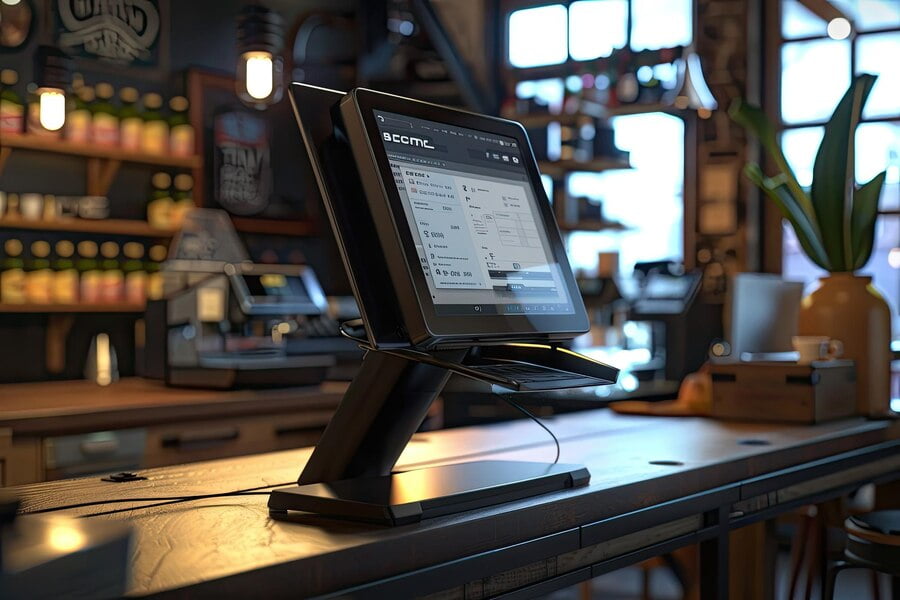POS Systems: The Backbone of Successful Restaurant Management

In the fast-paced world of the restaurant industry, efficiency, accuracy, and customer satisfaction are paramount. A key element that ties all these aspects together is a Point of Sale (POS) system. Once considered merely a tool for processing transactions, modern POS systems have evolved into comprehensive management solutions that play a crucial role in the success of restaurants. This blog explores how POS systems have become the backbone of successful restaurant management.
Streamlining Operations
One of the most significant advantages of POS systems is their ability to streamline operations. From the moment a customer places an order to the final payment, a POS system ensures that every step is executed seamlessly. Orders are quickly and accurately transmitted from servers to the kitchen, reducing the chances of errors and ensuring that customers receive their meals promptly.
Moreover, POS systems help in managing inventory effectively. They track the ingredients used in each dish and provide real-time updates on stock levels. This feature not only helps in preventing shortages but also minimizes waste by ensuring that ingredients are used efficiently. Managers can set up automatic alerts for low stock levels, making the reordering process more proactive and less time-consuming.
Enhancing Customer Experience
In today’s competitive market, providing an exceptional customer experience is essential for retaining patrons and attracting new ones. POS systems contribute significantly to this by speeding up the ordering and payment processes. With features like tableside ordering, servers can input orders directly into the system using handheld devices, reducing wait times and improving order accuracy.
Additionally, POS systems often come with customer relationship management (CRM) tools that help in understanding customer preferences and behaviors. Restaurants can use this data to personalize marketing efforts, offer loyalty programs, and create a more tailored dining experience. For example, a POS system can track a customer’s favorite dishes or their birthday, allowing the restaurant to send personalized offers and promotions.
Also Read: 7 Powerful Ways POS Systems are Revolutionizing Customer Experience in 2024
Improved Financial Management
Accurate financial tracking is crucial for any business, and restaurants are no exception. POS systems provide detailed reports on sales, expenses, and profits, making it easier for restaurant owners to monitor their financial health. These systems can generate daily, weekly, or monthly reports, offering insights into peak hours, popular menu items, and overall sales performance.
Moreover, POS systems simplify the payroll process by tracking employee hours and calculating wages automatically. This reduces the chances of errors and ensures that employees are paid accurately and on time. For multi-location restaurants, POS systems can consolidate data from different branches, providing a comprehensive view of the entire business’s performance.
Enhancing Security and Reducing Fraud
With the rise of digital transactions, security has become a major concern for restaurant owners. POS systems come equipped with advanced security features that protect sensitive customer information and reduce the risk of fraud. Features like encrypted transactions, user authentication, and secure payment gateways ensure that customer data is safeguarded.
Furthermore, POS systems help in reducing internal theft and fraud by tracking every transaction and maintaining detailed records. Managers can monitor voids, discounts, and refunds, making it easier to identify any suspicious activities. Employee access levels can be controlled, ensuring that only authorized personnel can perform certain actions.
Adapting to Modern Trends
The restaurant industry is constantly evolving, and POS systems are keeping pace with these changes. With the growing popularity of online ordering and delivery services, many POS systems now integrate seamlessly with third-party delivery platforms. This allows restaurants to manage both in-house and online orders from a single system, ensuring consistency and efficiency.
In addition, many modern POS systems offer cloud-based solutions, providing the flexibility to access data from anywhere at any time. This is particularly beneficial for restaurant owners who manage multiple locations or need to stay updated on their business’s performance while on the go.
Conclusion
POS systems have undoubtedly become the backbone of successful restaurant management. By streamlining operations, enhancing customer experience, improving financial management, ensuring security, and adapting to modern trends, these systems provide a comprehensive solution that addresses the unique challenges of the restaurant industry. Investing in a robust POS system is not just a technological upgrade; it’s a strategic move that can drive efficiency, profitability, and growth for any restaurant.
Visit our site at www.dibtech.com.au
Visit our YouTube channel for tutorials Dibtech






